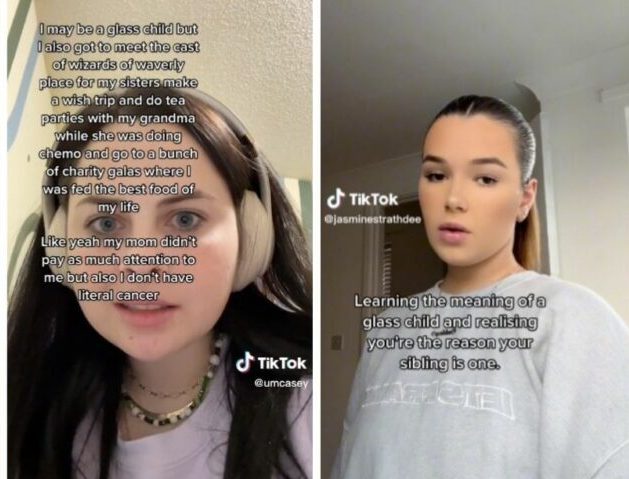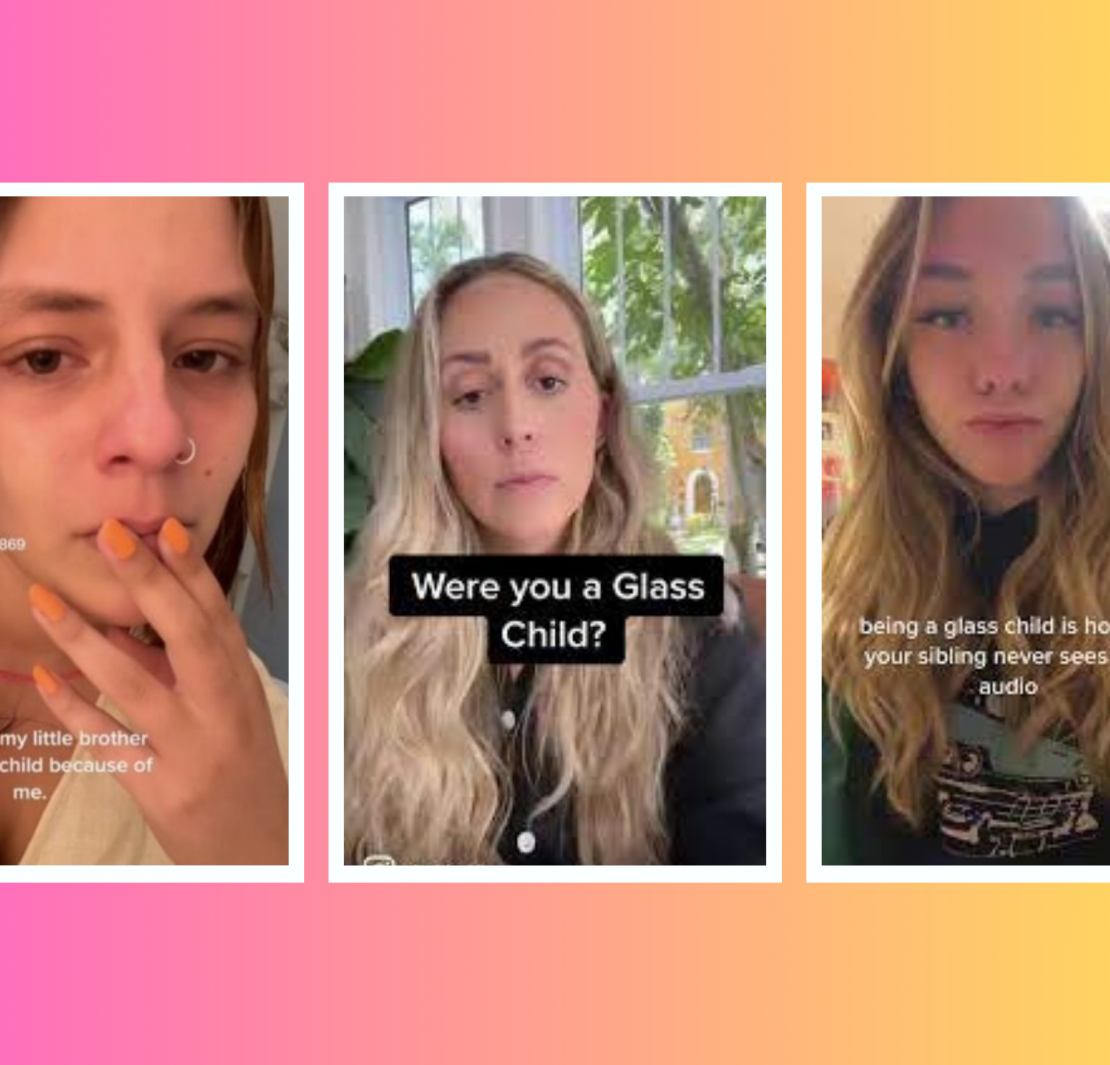With social media becoming the most preferred platform for expression, it has become commonplace for people to share their personal feelings with millions of strangers online in the hopes of finding relatable experiences.
There are downsides to that of course. But more often than not, people who have grown up feeling isolated due to certain experiences end up finding solace in knowing that they are not alone. The internet’s latest trend similarly puts the spotlight on ‘glass children’, and many are coming forward with their experiences of growing up as a ‘glass child/sibling’ without the ‘right kind’ of love and affection. These videos are usually accompanied by audio with the lyrics “Did you get enough love, my little dove? Why do you cry?”
A ‘glass child’ or a ‘glass sibling’, is someone who grew up with a sibling whom their parents had to give more attention to. Glass children believe their disabled sibling received a disproportionate amount of parental attention at their expense. Many refer to it as the ‘Glass child syndrome’ but it isn’t a medical condition or diagnosis. It’s a colloquial term often used to describe the challenges and unique strengths of the siblings of children with chronic illnesses or disabilities. Most glass children are neurotypical as opposed to their siblings.
Glass suggests something which breaks easily, but the term actually has to do with the fact that the kid is see-through. It represents caregivers who see straight through the child and don’t meet their needs due to the focus given and attention being on their sibling.
Many people who say they are glass children have been using social media to share their experiences, family dynamics, and life stories. Speaker Alicia Maples first drew attention to this phenomenon in a 2010 TEDx talk, but it’s only recently gaining traction on social media. Since the trend started circulating on TikTok and Instagram, videos have amassed over 58 million views and millions of likes.
It’s hard to tell how many children suffer from this phenomenon in numbers, but it seems that a significant portion of young people likely has a sibling with a chronic illness or disability. Some of these neurotypical siblings may not feel like they can share negative feelings or experiences because their parents are busy caring for the child with a chronic illness or physical or developmental disability. They may feel that meeting their own needs comes second to the needs of their family. They also might end up distancing themselves so they can better cope, which can intensify any negative effects.
The trend itself has of course gained some negative traction. “Yeah my mom didn’t pay me as much attention but I also don’t have literal cancer.”, says one social media user and self-proclaimed ‘glass child’ in one such video. Some argue that the trend might shed a bad light on people with disabilities who don’t really have control over which sibling gets more attention. In their words, we could at least argue that the ‘glass siblings’ got ‘the better end of the stick’. Some might also interpret this trend to be selfish, and ‘attention seeking’, as it centres the experiences of neurotypical family members and disregards the experiences of the child with a disability.

People with disabilities already face a lot of flack as is, and this trend might double down on that. Some are already using it as an excuse to be ableists across the internet. But does that mean that the experiences of the ‘glass child’ aren’t valid? It’s a very fragile debate, with both sides of the argument holding some value.
‘Glass children’, if not properly addressed might also grow up to become adults with anxiety, depression and PTSD. It’s questionable, whether the need for parental attention and care surpasses the physical and mental needs of a child with a disability. Even so, ‘glass siblings’ should be allowed to express their feelings about their childhood experiences.
More so, we can’t possibly discuss and sum up experiences like these in 15-second short videos. So judging either party through social media, for a topic this sensitive is only building up to a bigger disaster.




